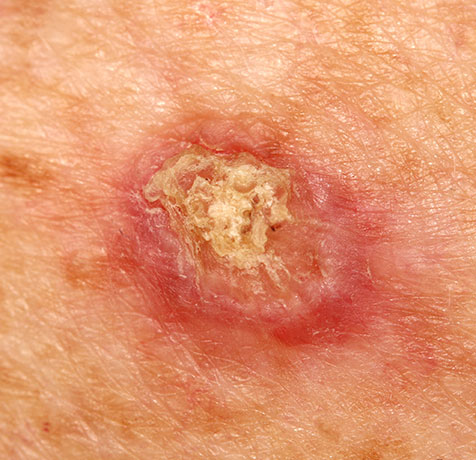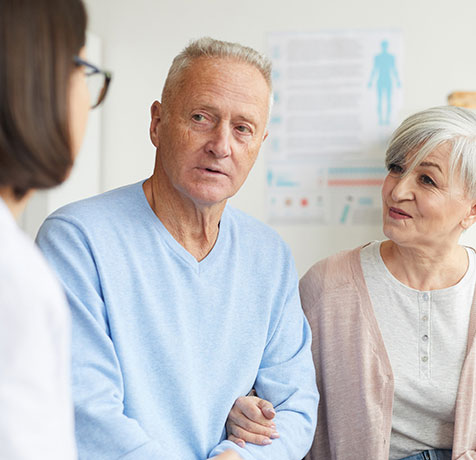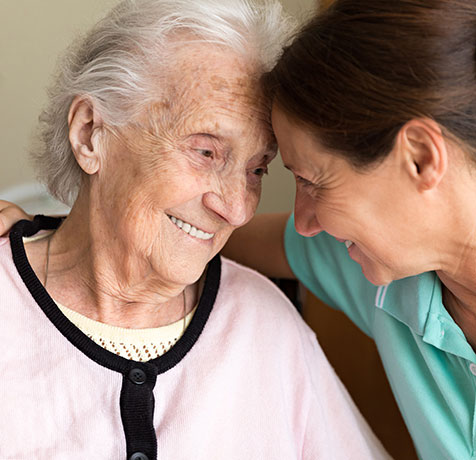FOR CAREGIVERS
Information and Resources to Help Support Someone With Skin Cancer
Learning that a family member, friend, or loved one has skin cancer may leave you with different thoughts and feelings. Maybe you want to help but do not know how. Maybe you think you know about skin cancer but want to be sure. Maybe you are worried about the outlook for your friend or family member but do not want to ask. The person you care about may have some of the same concerns—and may welcome your support along their journey.
Steps to supporting someone with skin cancer
Tap a tab to learn more.
cancer treatments

There are many types of skin cancer. Basal cell skin cancer and squamous cell skin cancer are the 2 most common types. They are named after the cells where the cancer starts, which are found in the top layer of the skin. There are many differences between basal cell carcinoma (skin cancer) and squamous cell carcinoma. Learn more about these types of cancer here.
Find credible information online about skin cancer and its treatment.
cancer treatments

There are many ways that basal cell and squamous cell skin cancers can be treated. Mohs surgery is one of the more common treatment options. There are other types of surgery, too. What’s more, there are also other types of treatments: radiotherapy, cryotherapy, photodynamic therapy, chemotherapy, immunotherapy, and targeted therapy. Your friend or family member can work together with the treatment team to choose the one that will not only treat the cancer, but give the best experience during treatment. Learn more about treatments for basal and squamous cell skin cancer here.
Download a Treatment Discussion Guide and find other resources that can help you and your loved one take an active role in care.

Supporting a friend, family member, or loved one with cancer can happen in many ways. One day, it may mean being an active listener. Another day, it may mean being an internet sleuth looking for information. Yet another day, it may be being a note-taker at a doctor’s appointment.
Many people with cancer know that others want to help but they do not know what help they need. Let your loved one know that you understand if he or she needs quiet and privacy, but that you are free to help. You might suggest:
- Researching information about the risks and benefits of treatment options
- Going to doctor appointments to listen and take notes
- Driving to and from appointments or procedures
- Scheduling follow-up appointments
- Picking up prescriptions
- Changing bandages
- Taking photos of the cancer or wound to track the healing progress
- Finding online or in-person support groups
As a caregiver, you are one part of a community of people living with or cured of skin cancer. You also can help your friend or family member avoid feeling lonely or embarrassed by helping him or her find others who have had a similar journey. Learn more about sharing the experience of living with skin cancer here.
Learn about the Patient Advisory Council and connect with others who want to help those living with skin cancer.